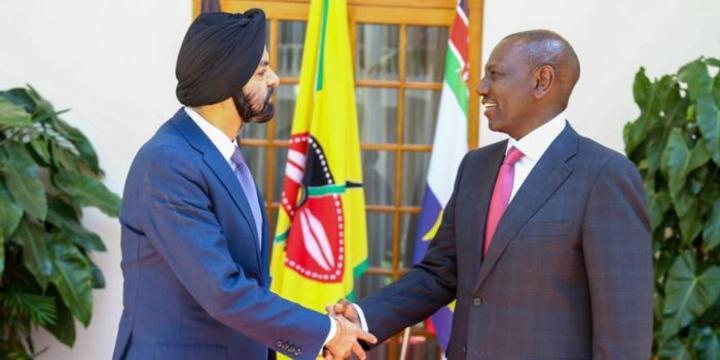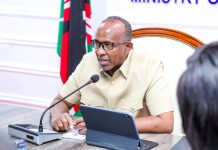Africa-Press – Kenya. The World Bank on Tuesday downgraded Kenya’s economic growth rate to 4.7 per cent, indicating Kenyans could continue to feel the pinch of a constricting economy.
In its yearly report, the World Bank on Tuesday, December 10, downgraded Kenya from the initial projection of 5.0 per cent at the beginning of the year to 4.7 per cent.
According to the report, Kenya’s economic growth forecast will decrease due to the economic hardships it experienced in 2024.
Kenya’s economy is likely to revert to the conditions witnessed before the height of the COVID-19 virus, where the growth rate stagnated at a level of 4.6 per cent, between 2011 and 2019.
The World Bank cited floods largely witnessed in April this year as a contributing factor alongside the anti-government protests against the Finance Bill 2024 that emerged in June.
“Kenya’s GDP is projected to grow at 4.7% in 2024, slower when compared to 5.6% in 2023 and closer to the country’s pre-pandemic average of 4.6% per year between 2011-2019, according to the latest Kenya Economic Update, launched today,” read part of the report by the World Bank.
“The update further notes that the April 2024 floods severely affected the livelihood of households, mostly in urban areas, limiting growth in private consumption,” it added.
The global multilateral lender also blamed the country’s inability to consolidate its finances as one of the reasons that will further dampen the economy.
What it means The downgrade means that thousands of Kenyan youth who are searching for job opportunities are likely to suffer as the country’s ability to create jobs will be greatly hindered. “A slowdown in economic growth would negatively affect job creation and poverty reduction,” said Qimiao Fan, World Bank Country Director for Kenya, Rwanda, Somalia, and Uganda.
However, the World Bank revealed that the slump can also be largely blamed on the runaway corruption that is being witnessed across Ministries, Departments, and State Agencies (MDAs).
“We remain strongly committed to supporting the people and government of Kenya to improve the economic environment and create more and better jobs. This can be done by addressing corruption and overall governance, tackling high fiscal vulnerabilities, and improving the business environment,” Fan added.
On borrowing, the World Bank noted that the government continues to walk on a tight path with limited room for external borrowing as a result of the already existing high debt deficits. However, the body added that Kenya has been able to manage its debts to sustainable levels well. It, however, blamed the government for continued domestic borrowing.
The increased reliance on domestic borrowing has had a negative impact, especially on companies in the private sector who continue to be sidelined by banks when accessing loans.
“There is limited room for external borrowing, and domestic government borrowing has increased, pushing interest rates up and crowding out private sector borrowing. Despite a projected primary surplus in FY24/25, higher interest payments have kept net financing needs at elevated levels,” World Bank noted.
“Kenya’s real GDP is envisioned to gradually pick up in the medium term, but structural imbalances are hindering Kenya’s goal of faster, sustained, and more inclusive growth,” it added.
For More News And Analysis About Kenya Follow Africa-Press






